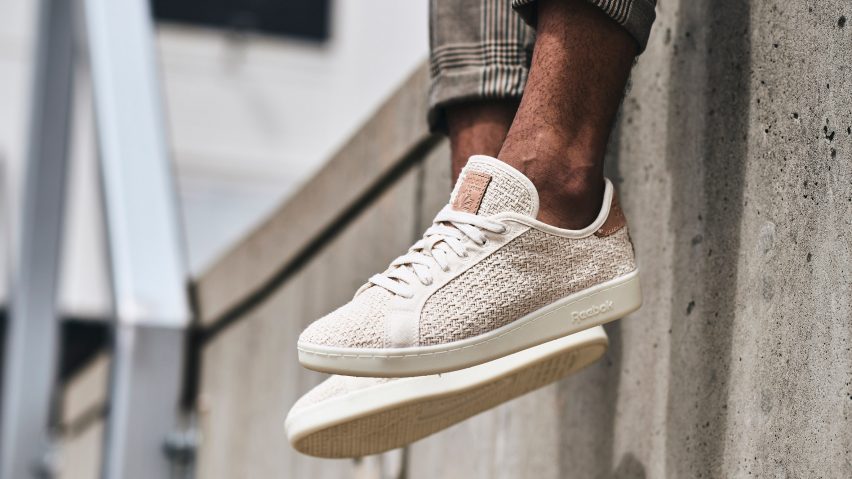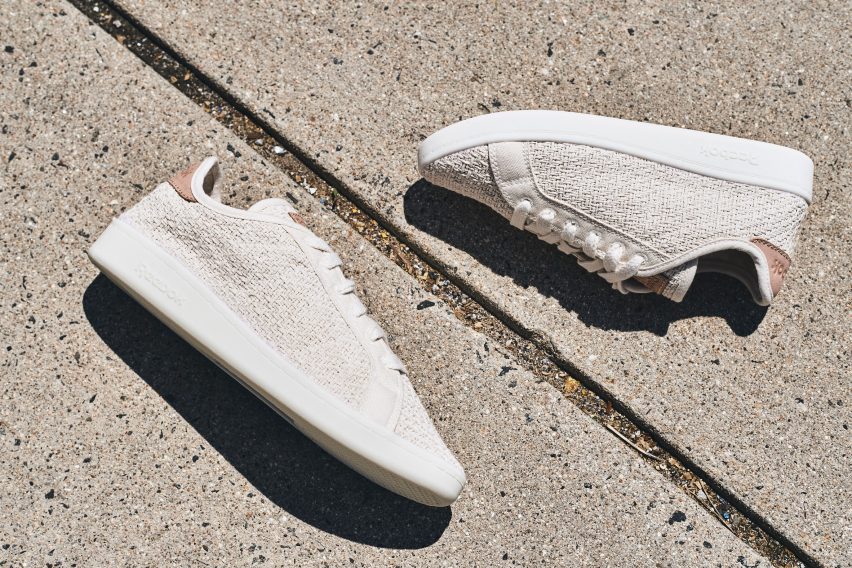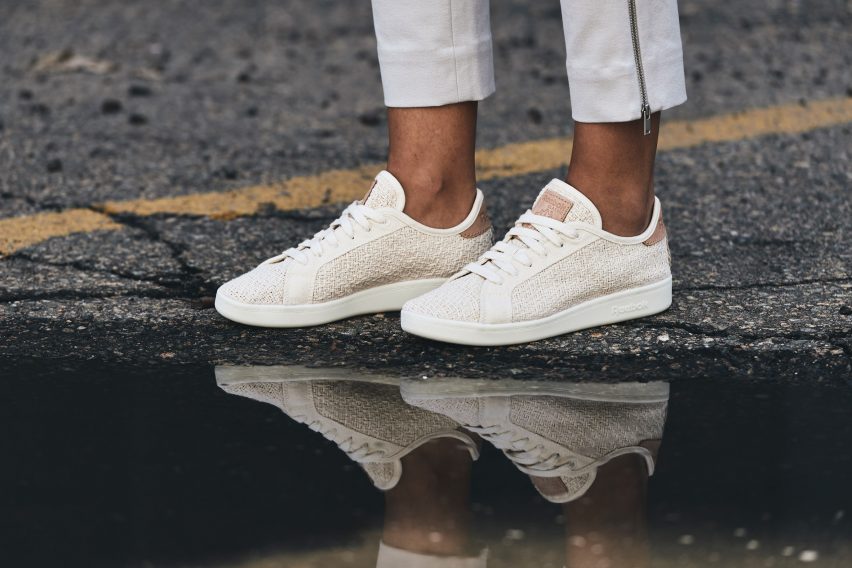
Reebok launches plant-based Cotton + Corn sneaker
Sportswear brand Reebok has revealed the first product from its sustainability initiative Cotton + Corn — a pair of trainers with a bioplastic sole.
Reebok launched the Cotton + Corn initiative last year to reduce the environmental impact of the fashion industry, starting with finding an alternative to the petroleum-based rubber and foam soles that are used in footwear.

"Most athletic footwear is made using petroleum to create synthetic rubber and foam cushioning systems," said Reebok innovation head Bill McInnis. "With 20 billion pairs of shoes made every year, this is not a sustainable way of making footwear."
"We thought 'what if we start with materials that grow, and use plants rather than oil-based materials?'," he continued.

The NPC UK Cotton + Corn sneaker is one of the results. It features a sole made from corn, while its insole is derived from castor bean oil, and the upper woven from 100 per cent cotton.
A total of 75 per cent of the sneaker is bio-based content, as certified by the United States Department of Agriculture (USDA).
McInnis says the shoe has undergone rigorous testing and development, and "performs and feels like any other shoe".

Reebok — which since 2005 has been wholly owned by Adidas, a company known for its own environmentally focused collaboration with Parley for the Oceans — partnered with US manufacturer DuPont Tate & Lyle Bio Products to develop the sneaker.
DuPont Tate & Lyle's 100 per cent bio-based material Susterra propanediol is used in the NPC UK Cotton + Corn's sole. The material is entirely petroleum-free and non-toxic.

"The NPC UK Cotton + Corn is the only footwear product on the market that has been certified as containing 75 per cent USDA-certified bio-based content," said McInnis.
"And this is just the start for us. We are on an ongoing path to create a different type of footwear — so that you can feel good about what you're wearing and where it came from."
Materials in the NPC UK Cotton + Corn are undyed, so it has a natural/chalk colour. Reebok is selling the product in 100 per cent recycled packaging, exclusively though its website.
Bio-based plastics are an area of rapid research and development. Recently, designers Eric Klarenbeek and Maartje Dros made a bioplastic made from algae, while Studio Nienke Hoogvliet used a wastewater-based plastic in its biodegrade cremation urn.
Others are working with recycled plastic in a bid to decrease from 12 billion tonnes the plastic waste the earth is expected to hold by 2050.